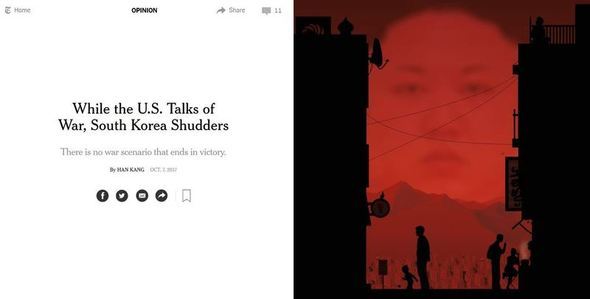 |
|
Han Kang
|
The author doesn’t regard the piece as ideologically or politically tinged
A controversial New York Times contribution last October by novelist Han Kang has been reprinted in the winter edition of the quarterly literary magazine “Munhak Dongne,” along with a brief position statement from the author on her reasons for writing the piece and the subsequent political uproar in South Korea. Han’s piece criticized US President Donald Trump for discussing war scenarios on the Korean Peninsula, declaring that any scenario other than peace was unthinkable for South Koreans. The piece was published in translation in the Oct. 7 edition of the New York Times under the title “While the US Talks of War, South Korea Shudders.” According to Han, the original title was “Who Is Talking about ‘Victory’ Scenarios?,” but the author changed it at the newspaper’s request. Han also explained that she was asked for a submission in May and respectfully declined, only to change her mind later “as the subsequent war of words escalated.” “I also felt concerned about the climate overseas, which seemed to regard South Korea as having only an anonymous public that is numb and insensitive to any crisis,” Han said. “So my thought was purely to communicate the real sense that there are flesh-and-blood people living here.”
 |
|
Han Kang’s op-ed piece, “While the US talks of war, South Korea shudders,” was printed in the New York Times on Oct. 7.
|







